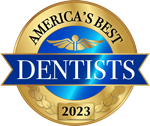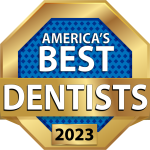One of the frequent questions in oral hygiene is about the appropriateness of chewing gum after brushing teeth. Many people view it as a quick way to freshen their mouth, but how does it affect dental health?
This article addresses the question “can I chew gum after brushing teeth” and delves into more detailed information on the subject.
Chewing Gum After Brushing: Is It Okay?
Yes, you can chew gum after brushing your teeth. However, the type of gum and the context in which you chew it are crucial factors to consider to ensure that it supports, rather than undermines, your oral health.
Selecting the Right Gum
The gum you choose is key to its impact on your dental health
- Sugar-Free Gum: Always opt for sugar-free gum. Unlike sugary gum, it doesn’t contribute to tooth decay. Many sugar-free gums contain xylitol, which is known to reduce harmful bacteria in the mouth.
- Gums with ADA Seal: Gums that have the American Dental Association (ADA) Seal of Acceptance are recommended. These gums have been tested and proven safe and effective for oral health.
The Benefits of Chewing Gum After Brushing
Chewing gum post-brushing does offer several benefits:
- Stimulates Saliva Production: Chewing gum boosts saliva production, helping to neutralize and rinse away acids produced by bacteria in plaque. This aids in protecting tooth enamel and preventing tooth decay.
- Freshens Breath: It’s a quick solution for freshening breath, especially when brushing isn’t an immediate option.
- Cleans Teeth: While it doesn’t replace brushing or flossing, chewing gum can help dislodge food particles from teeth.
Points to Consider
Despite the benefits, there are some cautionary points to bear in mind:
- Not a Brushing Substitute: It’s important to remember that chewing gum is not a substitute for brushing and flossing. It should be an addition to your regular oral hygiene routine, not a replacement.
- Duration of Chewing: Chewing for too long can lead to jaw discomfort or issues like TMJ (temporomandibular joint disorder) in some individuals.
- Acid Erosion: Some sugar-free gums contain acidic flavorings and preservatives that might contribute to dental erosion. Moderation in chewing such gums is advisable.
In summary, it is okay to chew gum after brushing your teeth, especially if it is sugar-free and has the ADA Seal of Acceptance.
The act of chewing gum can be beneficial for stimulating saliva, freshening breath, and even cleaning teeth to a certain extent.
However, it should never replace traditional brushing and flossing. When used judiciously as part of a comprehensive oral hygiene routine, chewing gum can be a beneficial adjunct to maintaining oral health.



